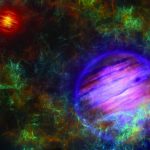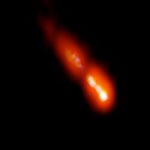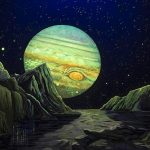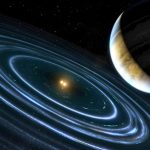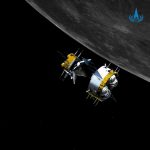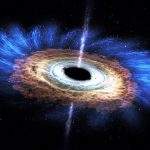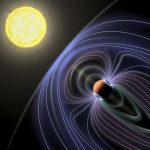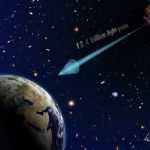This pair of lonely planet-like objects born like stars
A research team led by the University of Bern has discovered an exotic binary system composed of two young planet-like objects, orbiting around each...
Scientists unlock more secrets as to how and why stars die
Any Neapolitan ice cream lover knows three flavors are better than one.
New research from Northwestern University has found that by studying all three “flavors”...
Scientists discover a blazar in the early universe
The supersharp radio "vision" of the National Science Foundation's Very Long Baseline Array (VLBA) has revealed previously unseen details in a jet of material...
How nearby galaxies form their stars
Stars are born in dense clouds of molecular hydrogen gas that permeates interstellar space of most galaxies.
While the physics of star formation is complex,...
What’s the great conjunction or Christmas star?
As the world continues to turn during the COVID-19 pandemic, many of us are settling in for a holiday season unlike any other in...
This weird exoplanet looks like a cousin of Planet Nine
Astronomers are still searching for a hypothetical “Planet Nine” in the distant reaches of our solar system, but an exoplanet 336 light years from...
China probe returns with ‘treasure trove’ of moon rocks
The Chinese space agency announced Dec. 16 the return of a lunar probe bringing back the first fresh samples of rock and debris from...
Scientists find where giant jets from black holes discharge their energy
The supermassive black holes at the centers of galaxies are the most massive objects in the universe.
They range from about 1 million to upwards...
Scientists detect possible radio emission from exoplanet
By monitoring the cosmos with a radio telescope array, a Cornell University-led international team of scientists has detected radio bursts emanating from the constellation...
Most-distant galaxy reveals the early universe
New work from an international team of astronomers including Carnegie's Gregory Walth improves our understanding of the most-distant known astrophysical object-- GN-z11, a galaxy...

